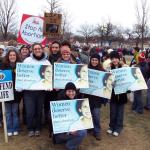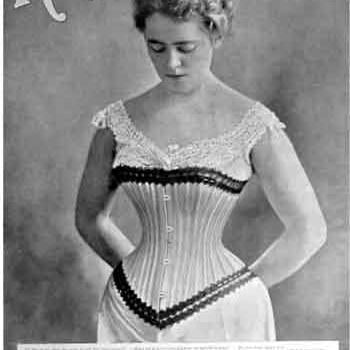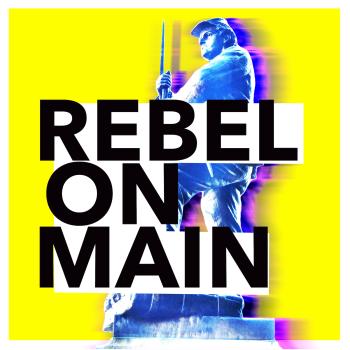I’m pleased to welcome my mother, Phyllis Miller Swartz, to the Anxious Bench. As I mentioned in my last post, we’re traveling together through Italy, Switzerland, Germany, and the Netherlands exploring our ancestral roots. Here she reflects on a visit to Guggisburg, Switzerland.
***
“I keep seeing gray-haired women and thinking they’re you,” my son said.
We were in Guggisberg, Switzerland, where we had happened upon a festival. The town was celebrating its 1000th birthday.
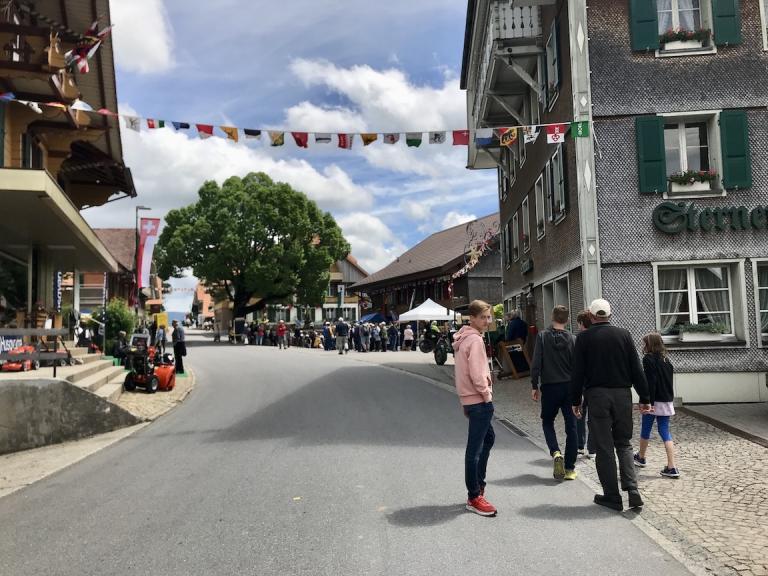 I knew what he meant. The cheese maker stoking a wooden fire looked like my cousin. The straight-backed and full-throated people singing Swiss folk songs around a table could have been my aunts and uncles. Two women walked toward us on a path.
I knew what he meant. The cheese maker stoking a wooden fire looked like my cousin. The straight-backed and full-throated people singing Swiss folk songs around a table could have been my aunts and uncles. Two women walked toward us on a path.
“They’ve got to be Brennemans,” I said to my husband.
We drove through the countryside to the Swartzentruber farm. Here my ancestors cultured milk over small fires and pulled the newly-forming cheese into cheesecloth so it could be pressed into molds. Here they cut the meadow grass with scythes, dried it in the sun, and raked it up to store in barns as winter feed for their cows. Here they kept an ear toward the ringing of the cow bells, as their livestock grazed sometimes out of view in the hilly landscape.
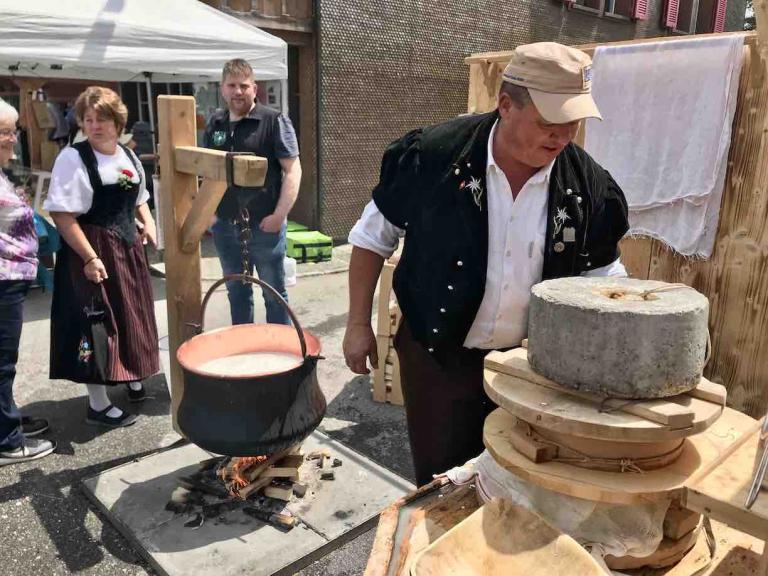 I stood still and listened. And from across the meadows flowered by mountain cowslip and heathers and buttercups, came the melodic sounds of cowbells, still chiming 500-some years later. What peace, I thought.
I stood still and listened. And from across the meadows flowered by mountain cowslip and heathers and buttercups, came the melodic sounds of cowbells, still chiming 500-some years later. What peace, I thought.
Except that in the barn just up the lane was our family’s version of the “hiding place.” In the barn that sheltered cows during harsh winters when deep snow covered the pastures from November to April and avalanched down the mountain, was a secret room. And in that room my family hid when they were hunted.
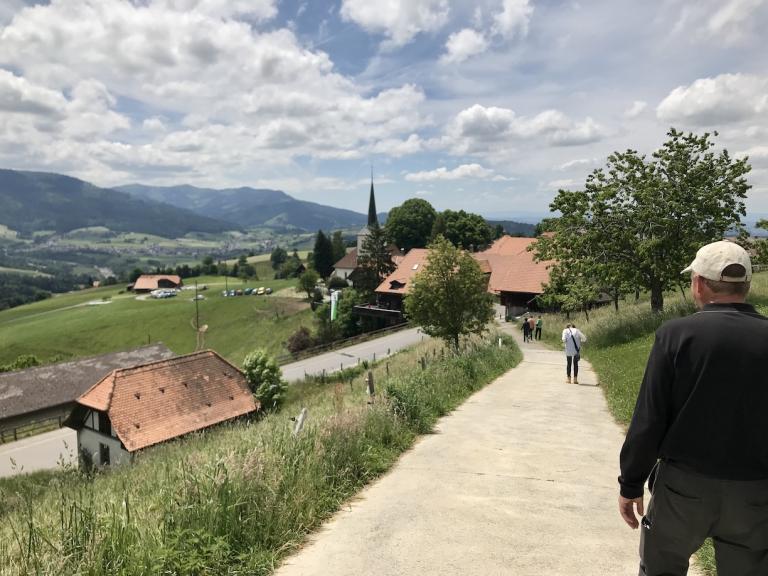 Anabaptists, my family had broken from the state reformed church. So that church and the government of Bern threatened them with expulsion, imprisonment, torture, and death. But sympathetic neighbors lower on the mountain signaled a secret code when Anabaptist hunters came riding. That’s when my family quit turning meadow grasses and pressing cheese, and disappeared through an inconspicuous trap door into the concealed room on the lowest level of the barn.
Anabaptists, my family had broken from the state reformed church. So that church and the government of Bern threatened them with expulsion, imprisonment, torture, and death. But sympathetic neighbors lower on the mountain signaled a secret code when Anabaptist hunters came riding. That’s when my family quit turning meadow grasses and pressing cheese, and disappeared through an inconspicuous trap door into the concealed room on the lowest level of the barn.
These were my people, I thought as cowbells chimed and meadow flowers swayed—in such a peaceful place with such danger looming.
Back at the festival in Guggisberg, I bought a cowbell. I’m going to hang it in my house . . . and remember.


